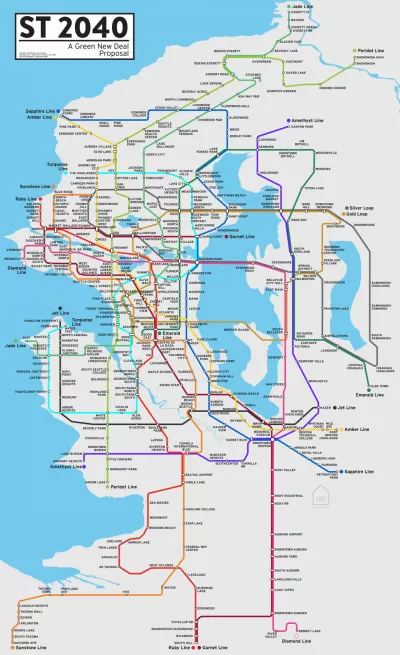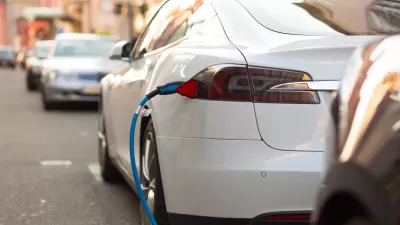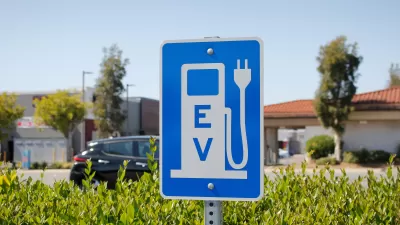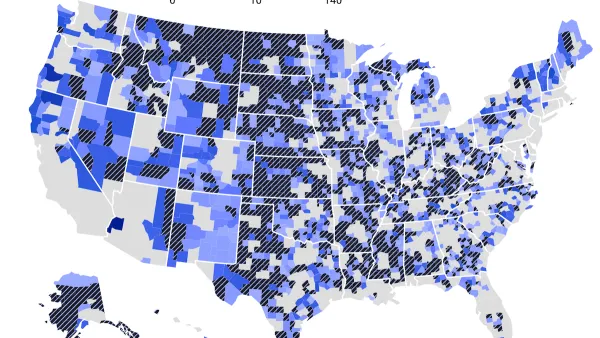In February, climate candidate for Seattle Mayor Andrew Grant Houston and I laid out a vision for the Puget Sound region's transportation future in The Urbanist.

In February, climate candidate for Seattle Mayor Andrew Grant Houston and I laid out a vision for the Puget Sound region's transportation future in The Urbanist. With major hydro-electric power generation, cars are the largest carbon emissions source in Washington State. To meet the state's climate goals, electric cars can help but with the risks of carbon lock-in, it's essential that transit is prioritized.
"With President Biden’s election, Seattle and Washington State have an opportunity to leverage his planned Build Back Better agenda and $2 trillion plan to build modern sustainable infrastructure and an equitable clean energy future. We can build Washington State’s public transit system and create sustainable, well-paying jobs by leveraging the Biden climate plan’s commitment to investing in sustainable transportation."
To achieve this ambitious goal, we need a plan that reaches beyond the Sound Transit 3 plan and prepares the Puget Sound region for an anticipated 1.8 million new residents by 2050. Andrew Grant Houston’s Sustainable Seattle Transit 2040 plan and the broader ST 2040 vision provide a framework to envision such an aggressive investment, enabling the establishment of 15-minute cities in Seattle and throughout the region.
ST 2040:
- Connects job centers and as many cities in the three counties as possible;
- Leaves the system open outside of Seattle to allow local communities to influence the specifics of implementation;
- Ensures every Seattleite is within one mile of a light rail station; and
- Creates a massive vision of a transit system that can be built to prepare the Puget Sound region for tremendous regional growth.
As we noted, Seattle is particularly important in this plan: "Perhaps the most crucial part of the ST 2040 plan is investing in developing the transit system of the economic engine and population center of the Puget Sound Region—Seattle. Seattle is the jobs and housing center for the region, and with Andrews’ vision for a Seattle-specific ST 2040 map, we can develop the city sustainably while adding hundreds of thousands of new residents. This plan could also be primarily paid for by federal investment and a tax on major regional polluters."
While some will call this vision overly ambitious and impossible, we believe it is essential to demonstrate what a truly world-class system could look like—to open the Overton window fully for real transformation that can solve the climate crisis:
"Through significant investment in sustainable public transportation in concert with enabling micromobility options, investment in sustainable housing development, and decarbonizing our ports, Seattle and the Puget Sound Region can lead the just transition to a sustainable economy and future for all."

Maui's Vacation Rental Debate Turns Ugly
Verbal attacks, misinformation campaigns and fistfights plague a high-stakes debate to convert thousands of vacation rentals into long-term housing.

Planetizen Federal Action Tracker
A weekly monitor of how Trump’s orders and actions are impacting planners and planning in America.

San Francisco Suspends Traffic Calming Amidst Record Deaths
Citing “a challenging fiscal landscape,” the city will cease the program on the heels of 42 traffic deaths, including 24 pedestrians.

Half of Post-Fire Altadena Home Sales Were to Corporations
Large investors are quietly buying up dozens of properties in Altadena, California, where a devastating wildfire destroyed more than 6,000 homes in January.

Opinion: What San Francisco’s Proposed ‘Family Zoning’ Could Really Mean
Mayor Lurie is using ‘family zoning’ to encourage denser development and upzoning — but could the concept actually foster community and more human-scale public spaces?

Jacksonville Launches First Autonomous Transit Shuttle in US
A fleet of 14 fully autonomous vehicles will serve a 3.5-mile downtown Jacksonville route with 12 stops.
Urban Design for Planners 1: Software Tools
This six-course series explores essential urban design concepts using open source software and equips planners with the tools they need to participate fully in the urban design process.
Planning for Universal Design
Learn the tools for implementing Universal Design in planning regulations.
Gallatin County Department of Planning & Community Development
Heyer Gruel & Associates PA
JM Goldson LLC
City of Camden Redevelopment Agency
City of Astoria
Transportation Research & Education Center (TREC) at Portland State University
Jefferson Parish Government
Camden Redevelopment Agency
City of Claremont






























